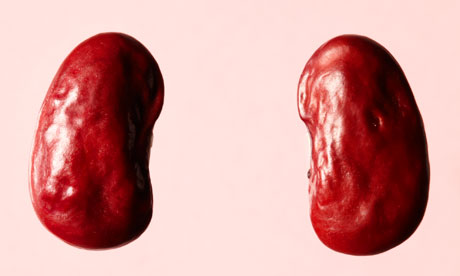
I had a routine medical last month, which I was sure would be OK. But the blood test results showed that I have chronic kidney disease, stage 3a. I'm 60. Will I eventually need to have dialysis and a kidney transplant? Do I need treatment to prevent my kidneys deteriorating further? I have never had any symptoms of kidney trouble.
Your chance of deteriorating into end-stage kidney failure, and therefore needing dialysis, is less than one in 100. So please don't worry. Since the blood test for kidney disease (it's called the EGF or estimated glomerular filtration rate) was instituted in 2006, as many as 10% of the people tested have been told they have stage 3 chronic renal failure. As there are only one or two people in the average general practice needing dialysis, the value of EGF has been called into question. Now we have four years of experience with it, the general approach is to wait and see, over the next few years, how each patient's EGF shifts. In the practices in which I work, the vast majority of the results stay steady, and there is no deterioration or need to treat with drugs designed to protect the kidneys.
I've been wondering whether I have GAD (generalised anxiety disorder), as my worrying levels have increased. I have been fine for around two years, but before that, in school, I constantly worried about everything, from whether somebody stared at me strangely or the fact that I didn't say goodbye to a friend. I'm now slipping back into this behaviour. Should I go to my GP?
Yes, if only to be reassured that you are going through an anxious phase at the moment, and that you can be helped a lot. Your medical practice will surely have someone – a specially trained nurse or a doctor – with an interest in helping you to overcome your anxiety. It may be that you need only advice on how to cope with your fears and worries, but your doctor may think it is useful for you to take an anti-anxiety medicine for a while. It's also good to talk to family and close friends whom you can trust, and who will also support you.
• Got a medical query for Dr Tom Smith? Email doctordoctor@theguardian.com

